There is no advanced sign-up for workshops. Workshops will be filled on a first-come, first-served basis.
Peer-networking for Students and PostdocsSaturday, May 18, 2019, 12:45 – 1:45 pm, Jasmine/Palm Peer-to-peer connections and networks can be the basis of your most important long-term collaborations and friendships. This workshop will help you meet and connect to your peer researchers, face to face. The format will be separate round tables dedicated to different topics, allowing opportunities for discussion and networking. Session moderators will help keep things organized. We’ll have at least one rotation during the workshop so that you will have the opportunity to talk to more people and explore more topics, including topics you’re working on now, as well as areas of interest for the future. |
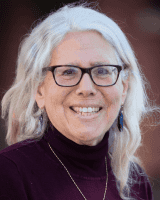 Eileen Kowler Eileen Kowler
Rutgers University Eileen Kowler is a Distinguished Professor at Rutgers University and Senior Associate Dean in the School of Graduate Studies. She received her doctoral degree from the University of Maryland, and was a postdoc at NYU. She has been at Rutgers since 1980, where she maintains affiliations with the Department of Psychology and Center for Cognitive Science. Kowler’s research focuses on the planning of and generation of eye movements and their role in visual tasks. In her roles as a faculty member, VSS board member, and former principal investigator of an NSF training grant, she has a strong commitment to the topic of this workshop: creating opportunities for students and postdocs to develop their careers and collaborate with one another. |
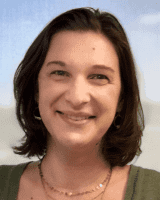 Talia Konkle Talia Konkle
Harvard University Talia Konkle is an Assistant Professor in the Department of Psychology at Harvard University. Her research characterizes mid and high-level visual representation at both cognitive and neural levels. She received her B.A. in Applied Math and Cognitive Science at UC Berkeley in 2004, her Ph.D. from MIT in Brain and Cognitive Science in 2011, and conducted her postdoctoral training at University of Trento and Harvard until 2015. Talia is the recipient of the 2019 Elsevier/VSS Young Investigator Award. |
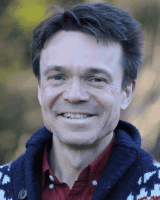 Fulvio Domini Fulvio Domini
Brown University Fulvio Domini is a Professor at the department of Cognitive, Linguistic and Psychological Sciences at Brown University. He was hired at Brown University in 1999 after completing a Ph.D. in Experimental Psychology at the University of Trieste, Italy in 1997. His research team investigates how the human visual system processes 3D visual information to allow successful interactions with the environment. His approach is to combine computational methods and behavioral studies to understand what are the visual features that establish the mapping between vision and action. His research has been and is currently funded by the National Science Foundation. |
VSS Workshop for PhD Students and Postdocs:
|
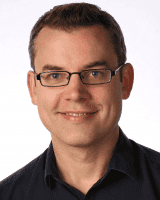 Alex Holcombe Alex Holcombe
University of Sydney When not teaching or working on vision experiments, Alex Holcombe works to improve transparency in and access to research. To address the emerging reproducibility crisis in psychology, in 2011 he co-created PsychFiledrawer.org, in 2013 introduced the Registered Replication Report at the journal Perspectives on Psychological Science, and appears in this cartoon about replication. He was involved in the creation of the journal badges to signal open practices, the preprint server PsyArxiv, the new journal Advances in Methods and Practices in Psychological Science, and PsyOA.org, which provides resources for flipping a subscription journal to open access. Talk to him anytime on Twitter @ceptional. |
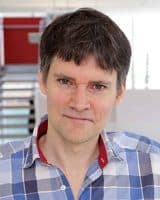 Niko Kriegeskorte Niko Kriegeskorte
Columbia University Nikolaus Kriegeskorte is a computational neuroscientist who studies how our brains enable us to see and understand the world around us. He received his PhD in Cognitive Neuroscience from Maastricht University, held postdoctoral positions at the Center for Magnetic Resonance Research at the University of Minnesota and the U.S. National Institute of Mental Health in Bethesda, and was a Programme Leader at the U.K. Medical Research Council Cognition and Brain Sciences Unit at the University of Cambridge. Kriegeskorte is a Professor at Columbia University, affiliated with the Departments of Psychology and Neuroscience. He is a Principal Investigator and Director of Cognitive Imaging at the Zuckerman Mind Brain Behavior Institute at Columbia University. Kriegeskorte is a co-founder of the conference “Cognitive Computational Neuroscience”, which had its inaugural meeting in September 2017 at Columbia University. |
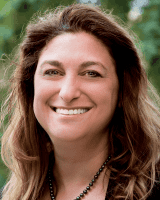 Allison Sekuler Allison Sekuler
McMaster University Allison Sekuler is the Sandra Rotman Chair in Cognitive Neuroscience and Vice-President Research at Baycrest Centre for Geriatric Care. She also is Managing Director of the Centre for Aging + Brain Health Innovation, and the world-renowned Rotman Research Institute. A graduate of Pomona College (BA, Mathematics and Psychology) and the University of California, Berkeley (PhD, Psychology), she holds faculty appointments at the University of Toronto and McMaster University, where she was the country’s first Canada Research Chair in Cognitive Neuroscience and established lasting collaborations with Japanese researchers. Dr. Sekuler has a notable record of scientific achievements in aging, vision science, neural plasticity, imaging, and neurotechnology. Her research focuses on perceptual organization and face perception, motion and depth perception, spatial and pattern vision, and age-related changes in vision. The recipient of numerous awards for research, teaching and leadership, she has broad experience in senior academic, research, and innovation leadership roles, advancing internationalization, interdisciplinarity, skills-development, entrepreneurship, and inclusivity. |
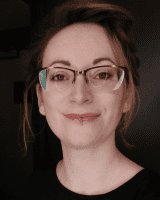 Kate Storrs Kate Storrs
Justus-Liebig University, Giessen Kate Storrs is currently a Humboldt Postdoctoral Fellow using deep learning to study material perception at the Justus-Liebig University in Giessen, Germany. Before that she was a postdoc at the University of Cambridge, a Teaching Fellow at University College London, and a PhD student at the University of Queensland in Australia. Her main professional hobby is science communication. Kate has performed vision-science-themed stand-up comedy in London at the Royal Society, the Natural History Museum, the Bloomsbury Theatre, and a dozen pubs and festivals across the UK. She has presented vision science segments on Cambridge TV, the Naked Scientists podcast, BBC Cambridgeshire radio, and was a UK finalist in the 2016 FameLab international science communication competition. Always happy to talk on Twitter @katestorrs. |
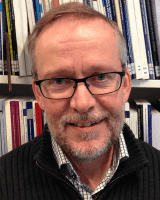 Johan Wagemans Johan Wagemans
University of Leuven, Belgium Johan Wagemans is a professor in experimental psychology at the University of Leuven (KU Leuven) in Belgium. Current research interests are mainly in perceptual grouping, figure-ground organization, depth perception, shape perception, object perception, and scene perception, including applications in autism, arts, and sports (see www.gestaltrevision.be). He has published more than 300 peer-reviewed articles on these topics and he has edited the Oxford Handbook of Perceptual Organization (2015).In addition to supervising many PhD students and postdocs, he is doing a great deal of community service such as coordinating the Department of Brain & Cognition, being editor of Cognition, Perception, i-Perception, and Art & Perception, and organizing the European Conference of Visual Perception (ECVP) and the Visual Science of Art Conference (VSAC) in Leuven (August 2019). |
